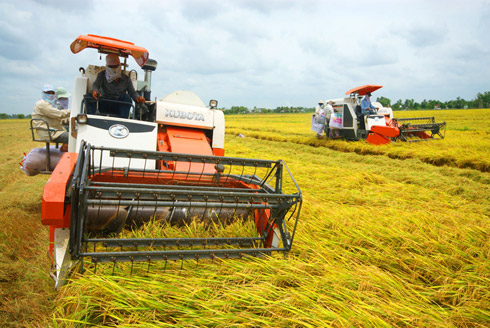VN focuses on developing Mekong Delta
VGP - After 10 years of implementing the Resolution 21-NQ/TW of the Politburo on developing the Mekong Delta in the 2001-2010 period, the region has reaped many achievements in socioeconomic development and defense-security.
|
|
|
Illustration photo |
The delta’s average GDP growth was 11.7%. Its budget collection in 2010 was over VND28 trillion, up 6 times against 2001; per capita income surged 2.5 times; the average production value rose nearly 11.87%; and export turnovers grew at an average of 17.8%. In 2010, the production value was nearly VND 337 trillion, up 3.5 times.
Over the past decade, the region mobilized VND 627 trillion for investment, including VND 139 trillion from the State budget, and the rest from enterprises and other social investment sources.
Meanwhile, the State budget collection reached nearly VND 142 trillion, and the local budget spending over VND 199 trillion. Business environment has improved with provincial competitiveness indexes being rated fairly good, good or very good.
However, the process of building the socialism-oriented market economy in the region was still slow, not keeping up with the renewal process and the international economic integration of the country.
The law, mechanism and policy system is not complete, synchronous and unified. The settlement of land-related issues had many shortcomings. The ownership, management and distribution in state-owned enterprises had not been solved well, causing difficulties for development and resulting in losses of state assets, especially during equitization process.
Enterprises of other economic sectors had still been discriminated. Market factors and kinds of markets took shape and developed slowly and not smoothly. The unhealthy competition, trade frauds, tax evasion were still rampant. The administrative reform did not met requirements, while corruption, red-tape and wastefulness were still serious. Quality of healthcare service, education and training were still low. The rich-poor gap was widened.
Amid the globalization process and the country’s accession to the World Trade Organization, efforts to develop the Mekong Delta’s economy are becoming more and more urgent to reduce poverty and improve culture and education.
To make the region to have a new look, it is necessary to have proper strategies and plans to perfect the socialism-oriented market economy to boost the economy in a rapid, effective and sustainable manner; gradually build up the synchronous system of laws to ensure the market develop smoothly while strengthening economic sectors.
By Ngọc Vân


